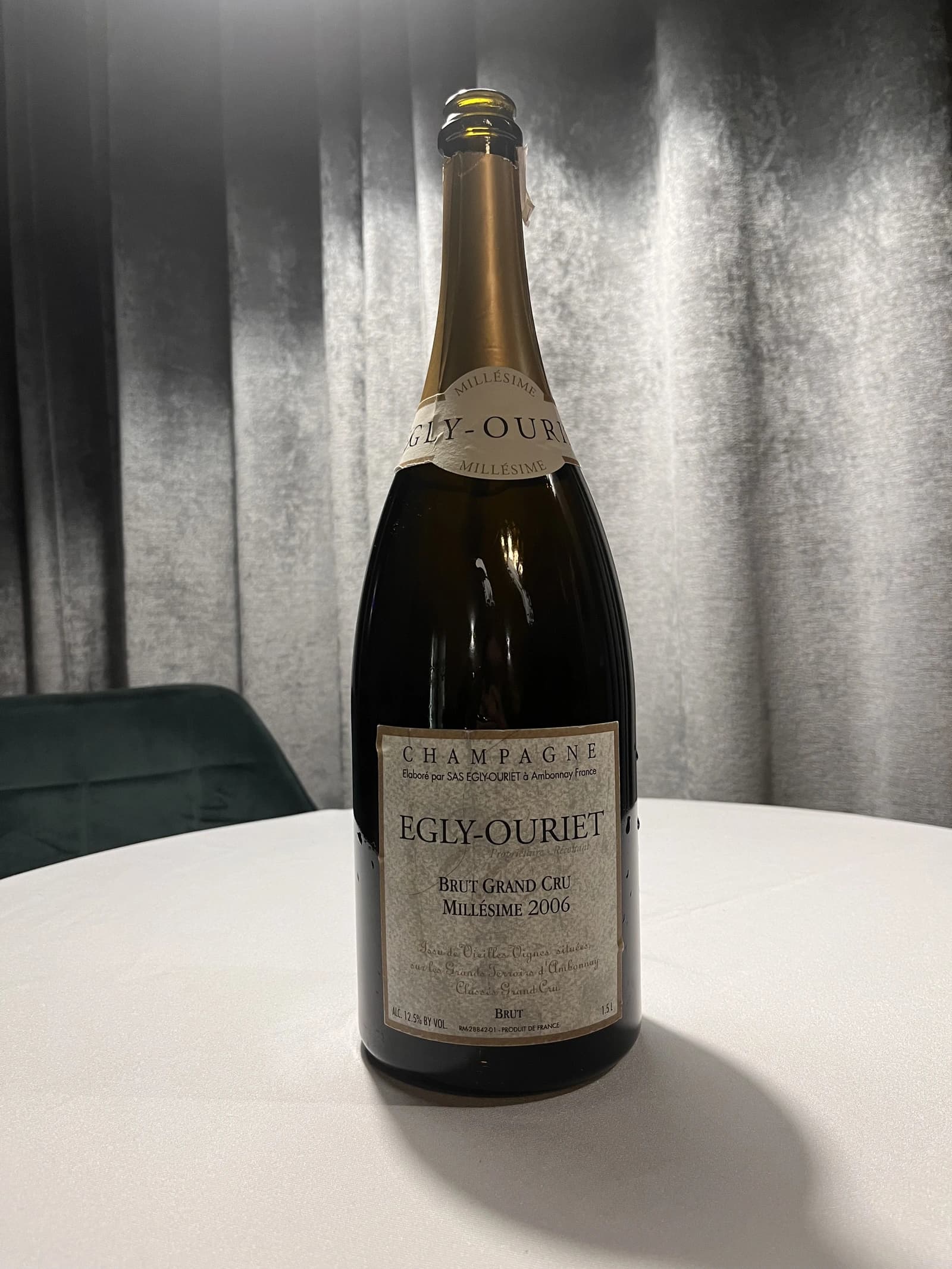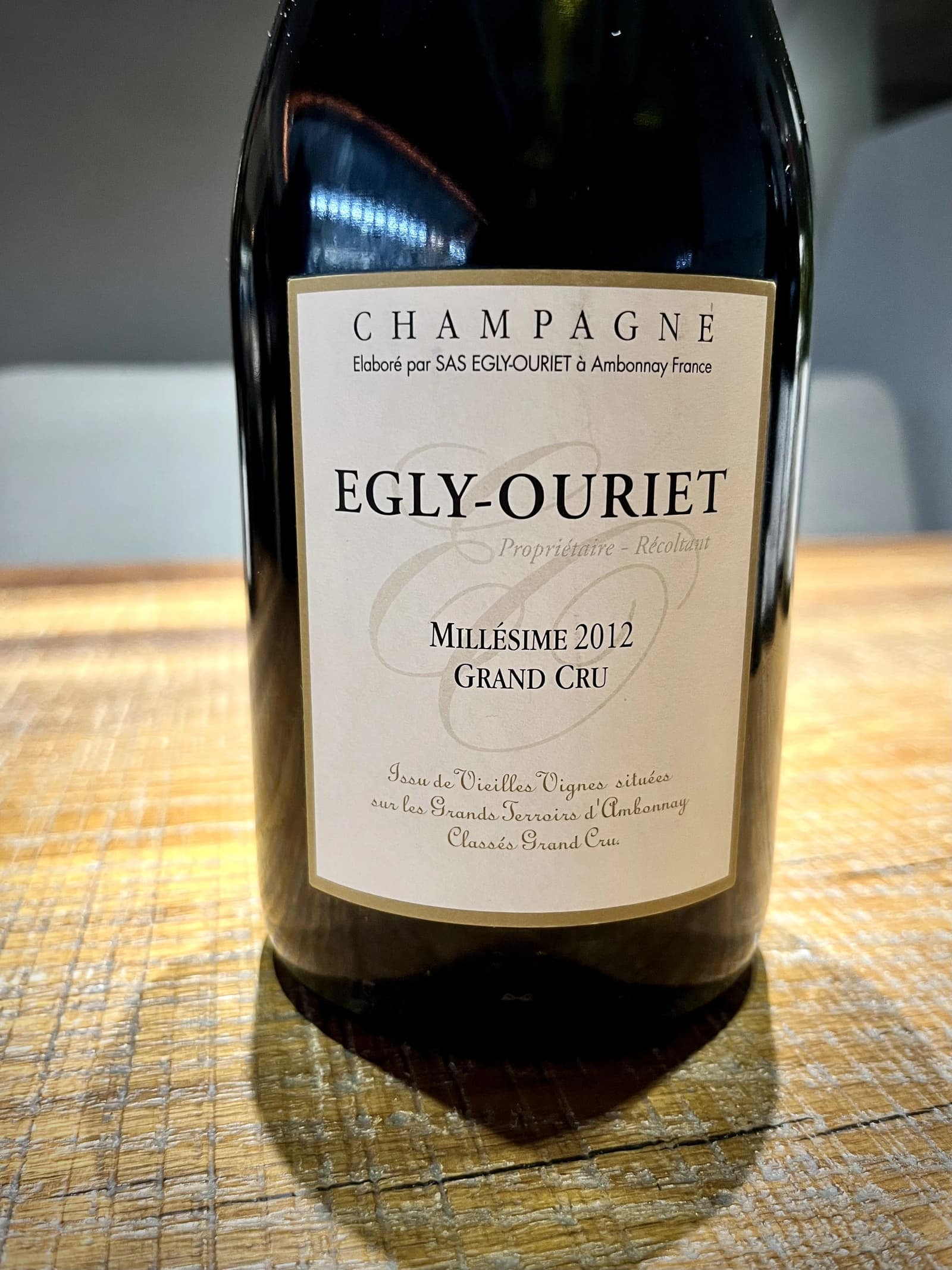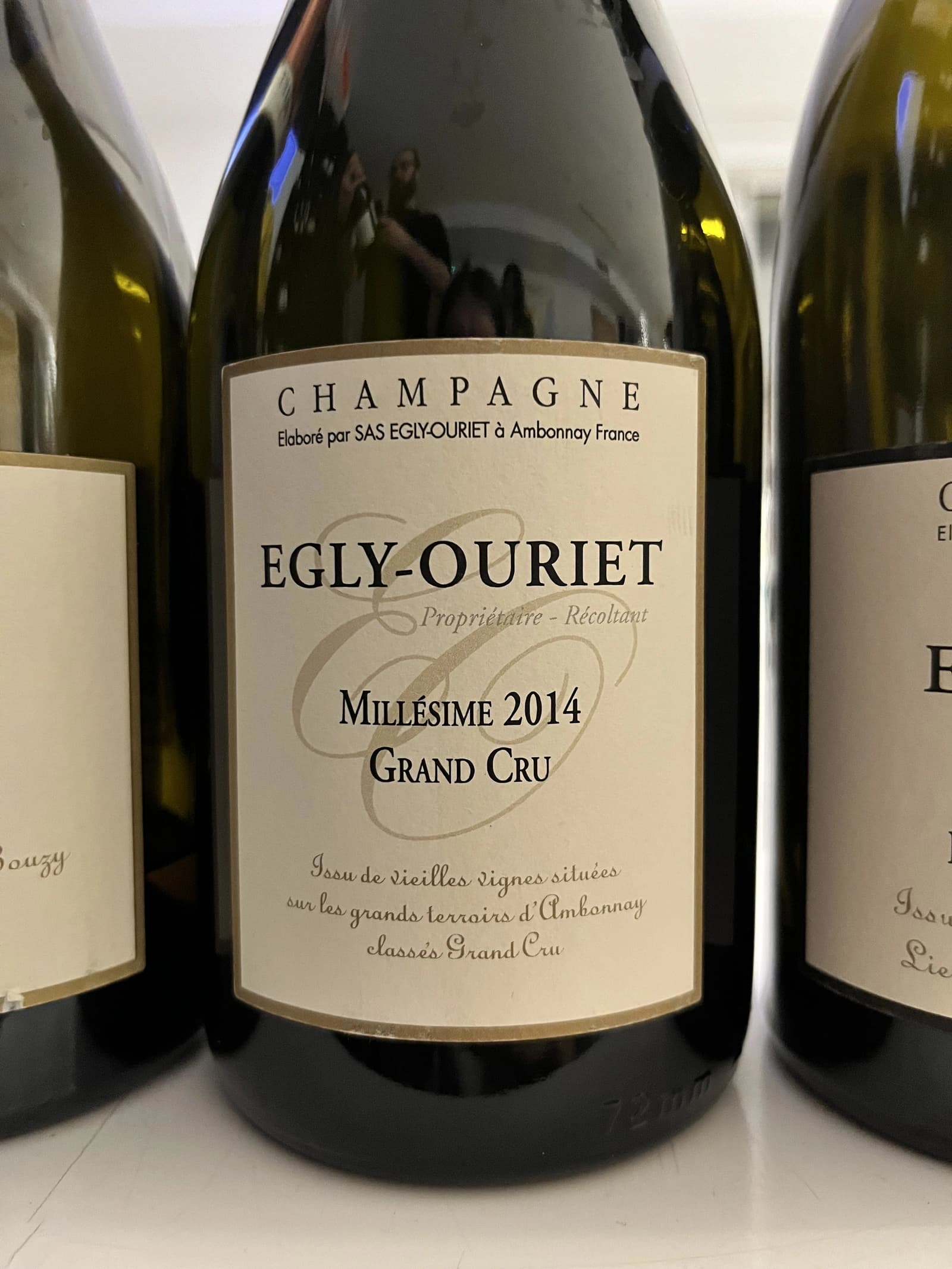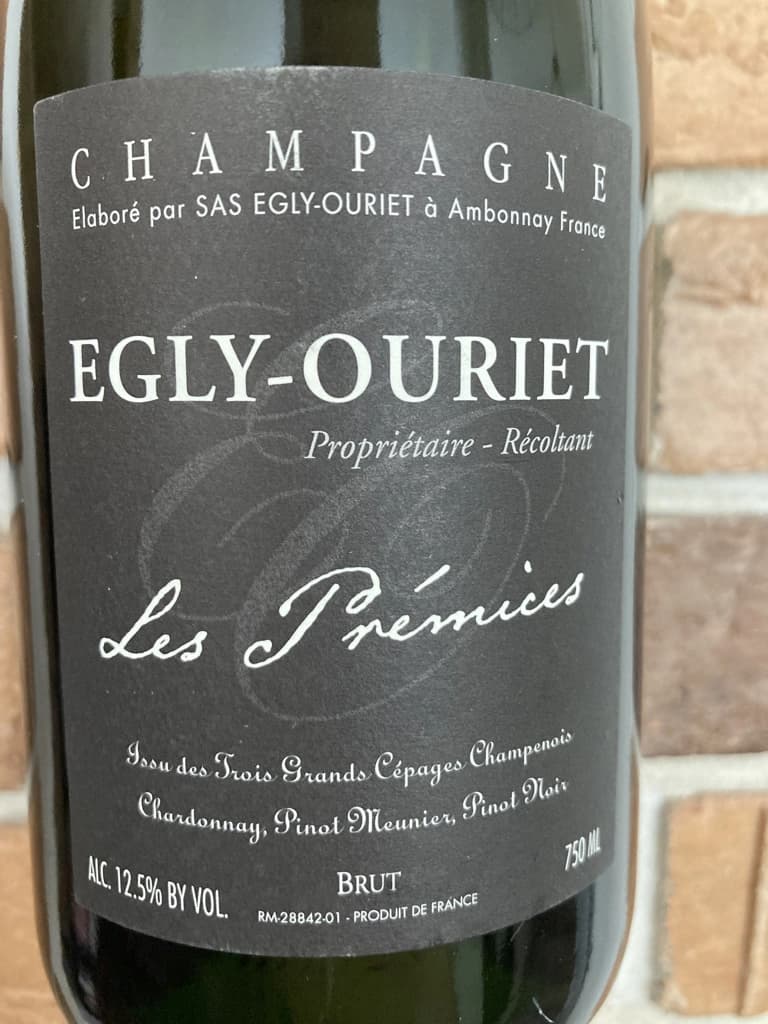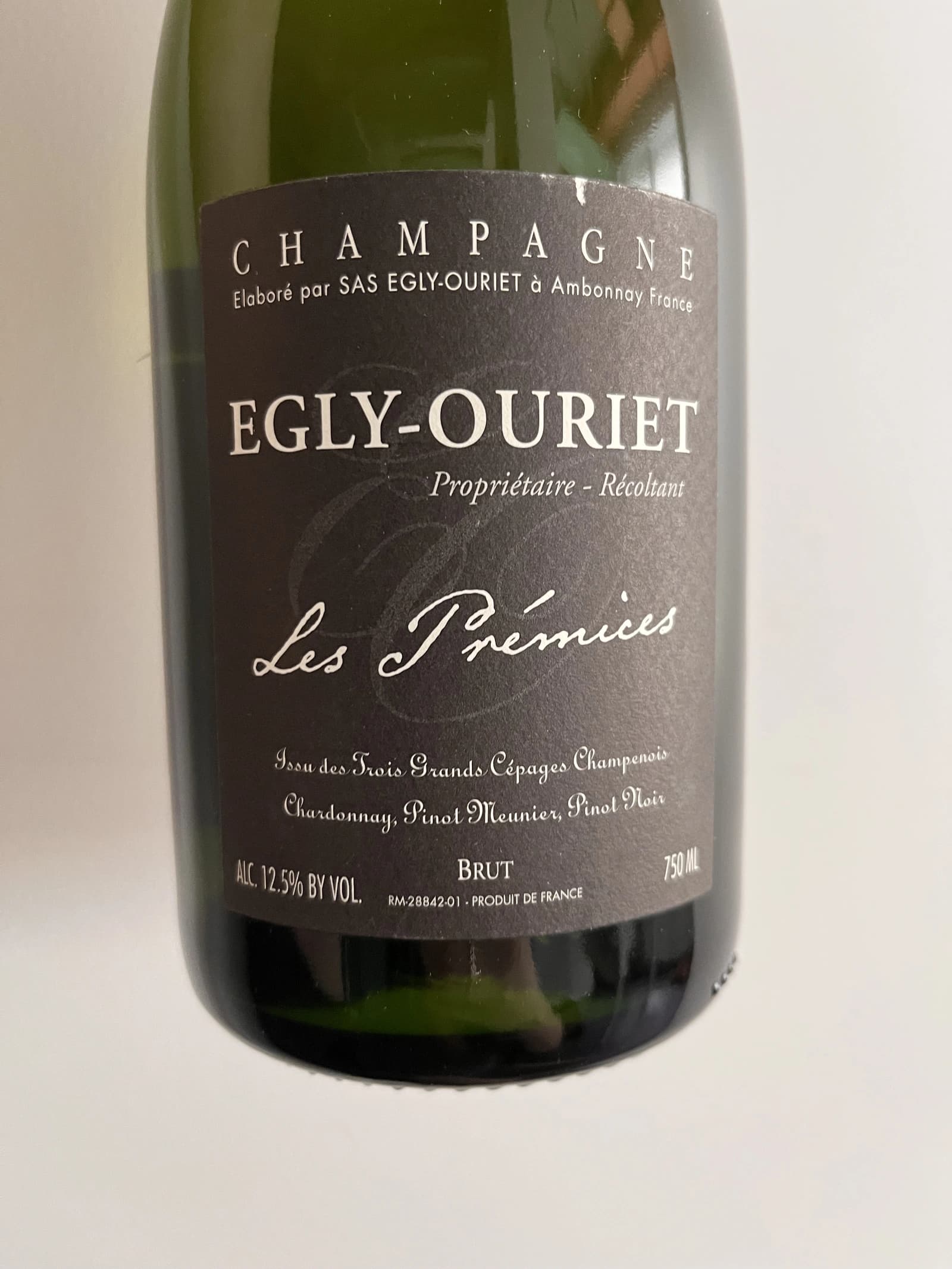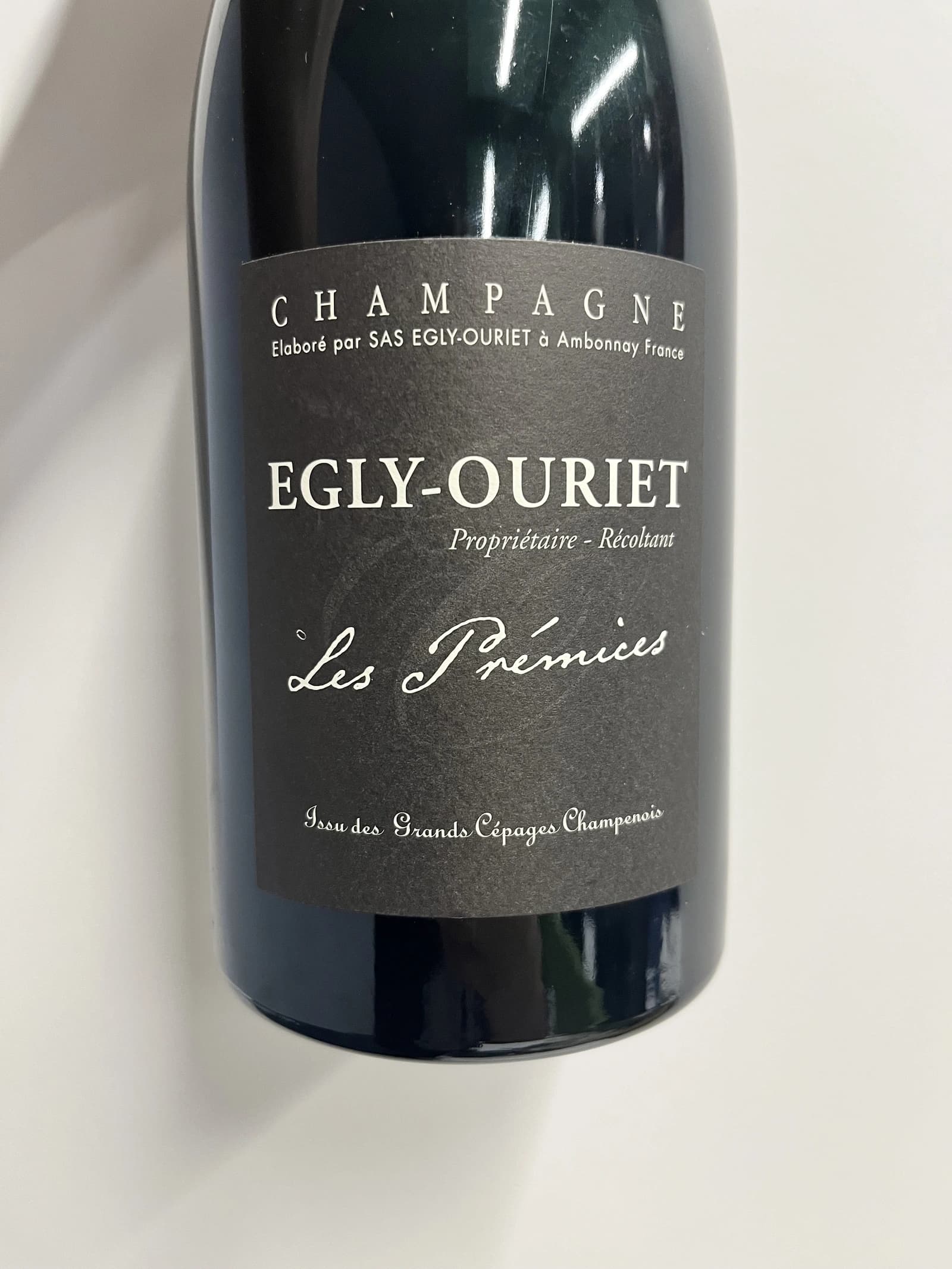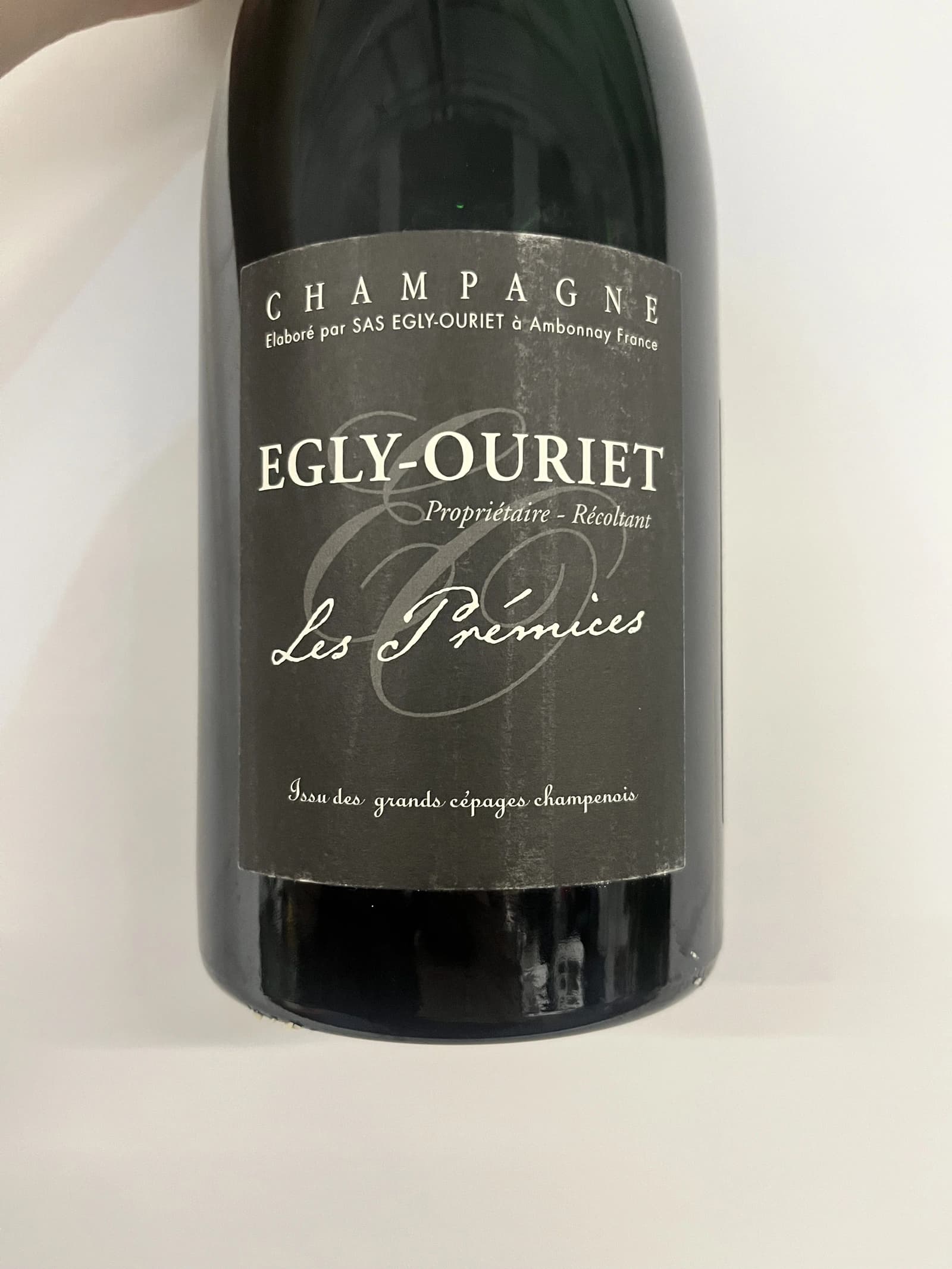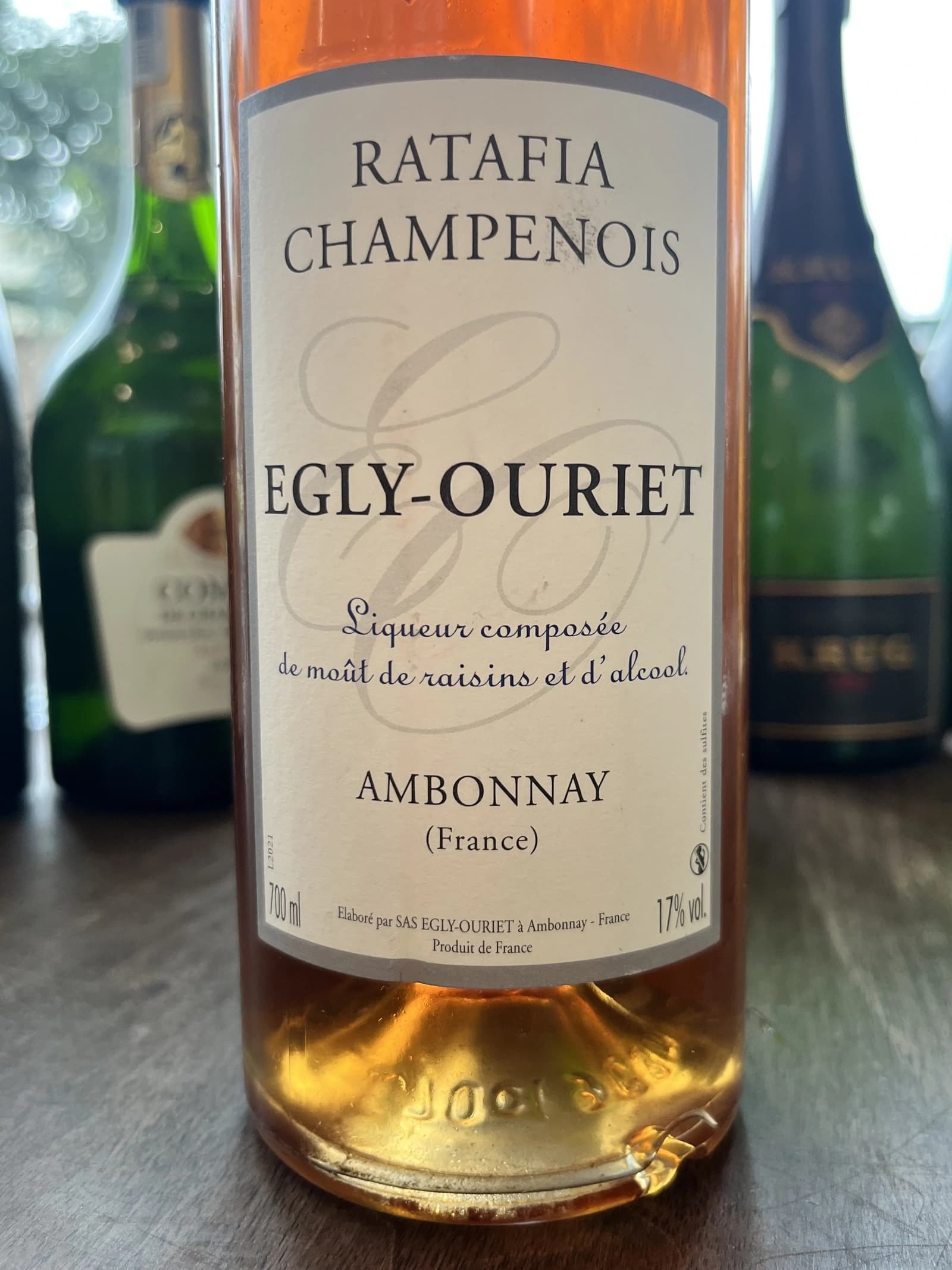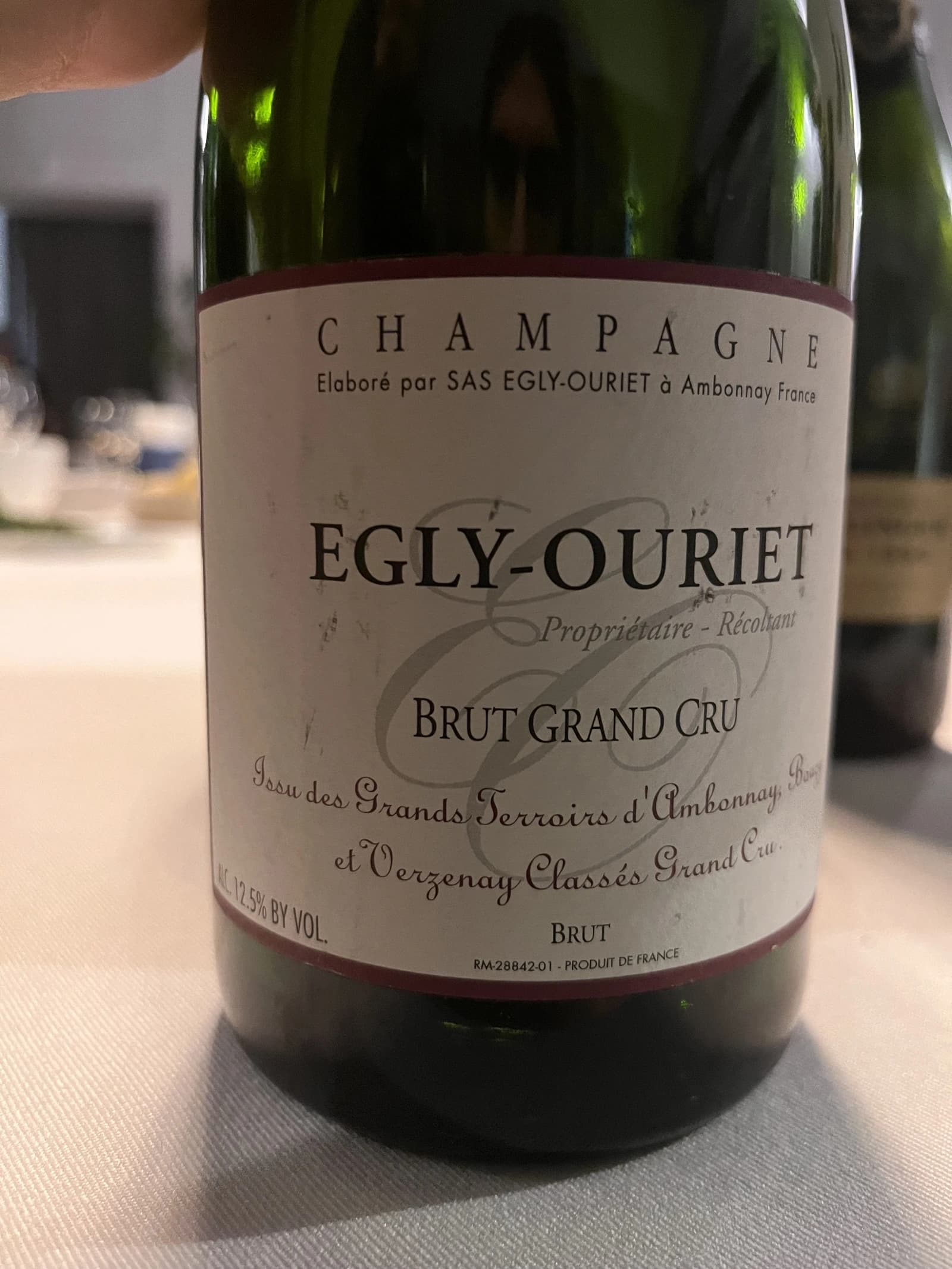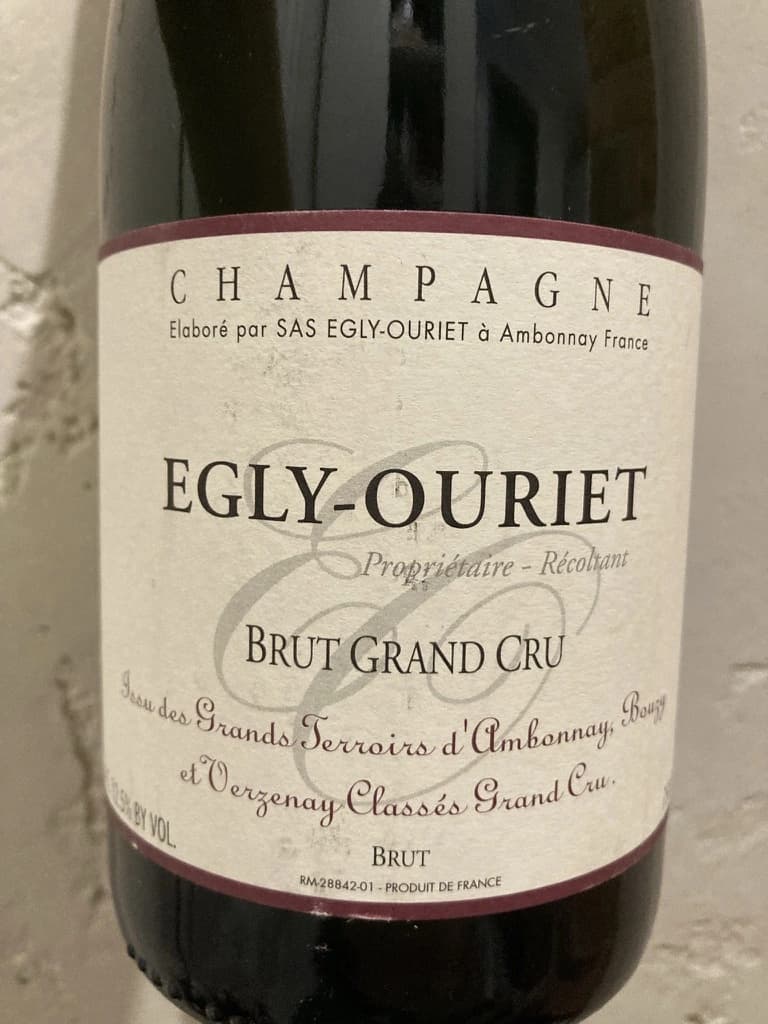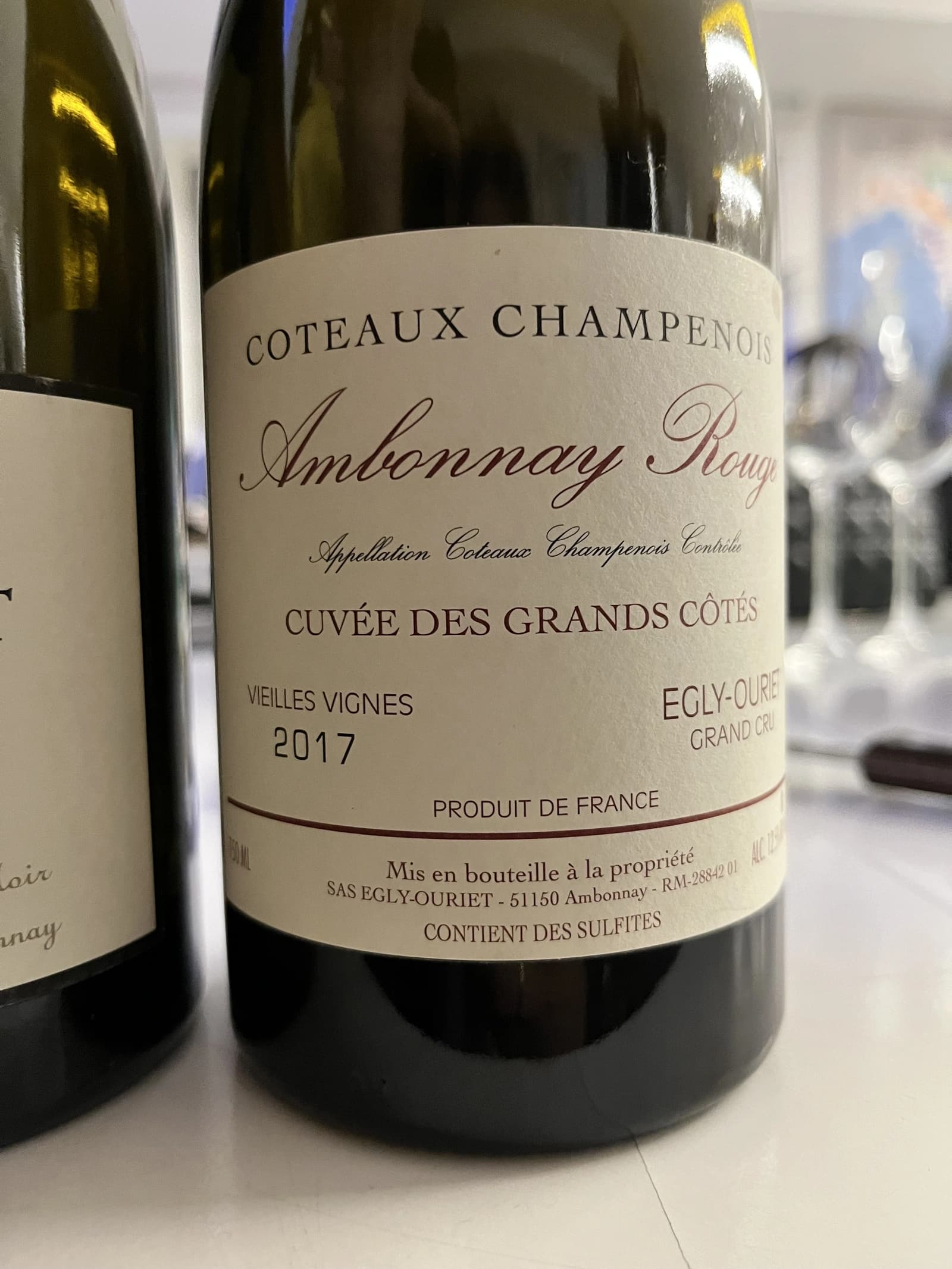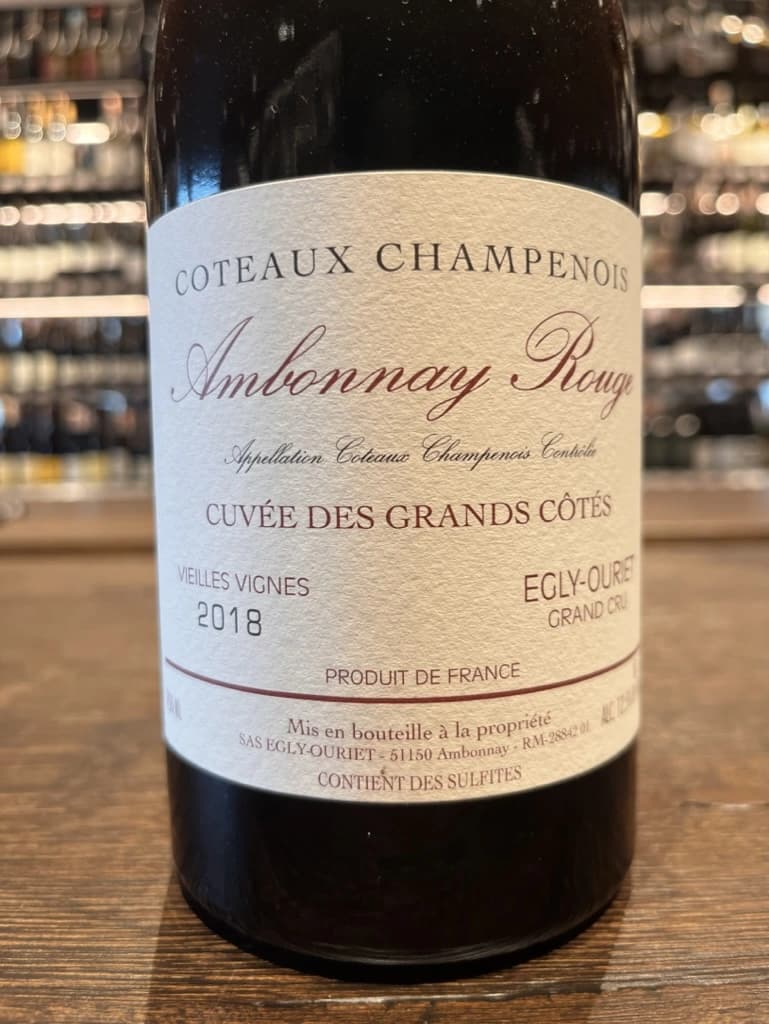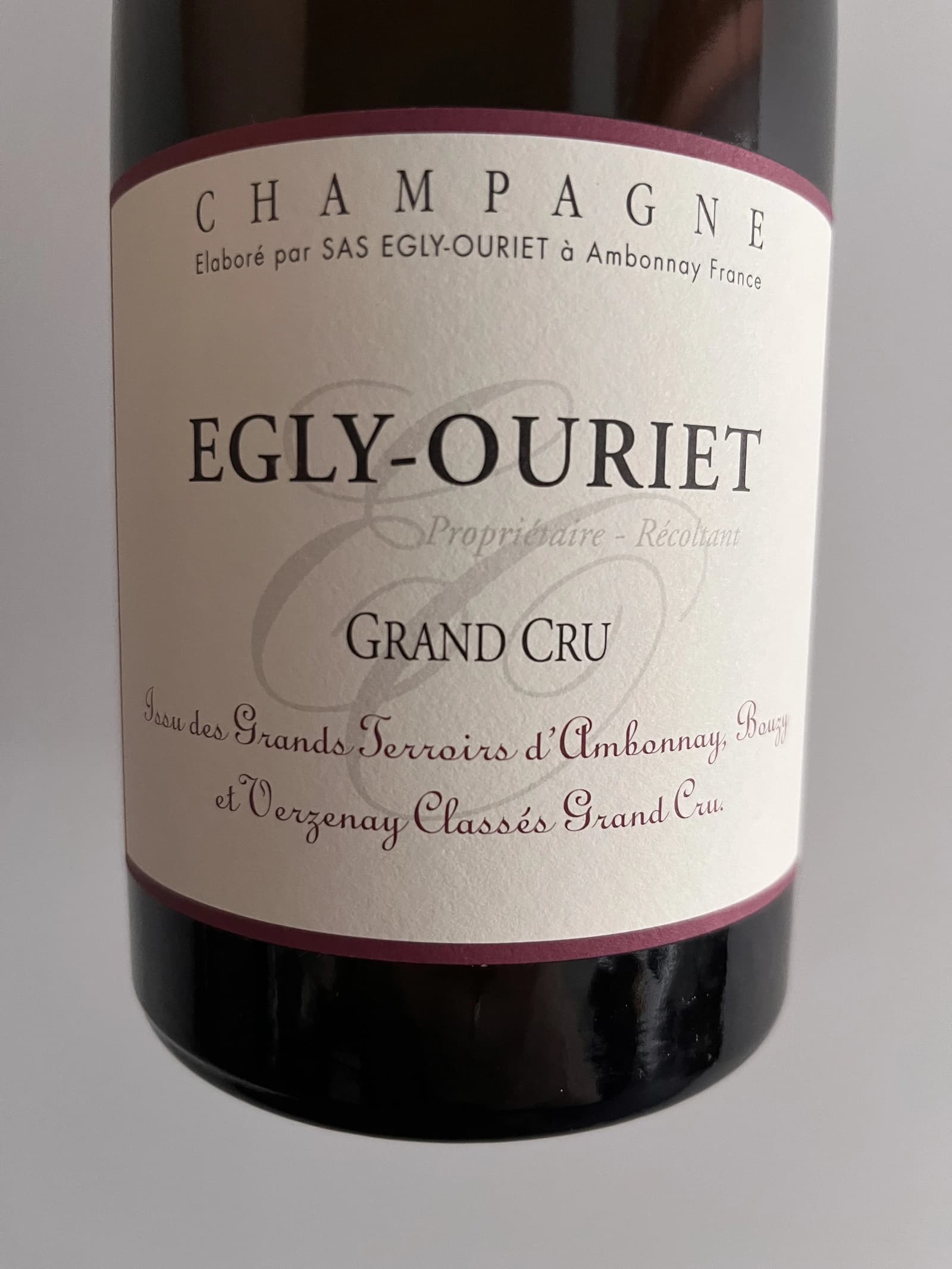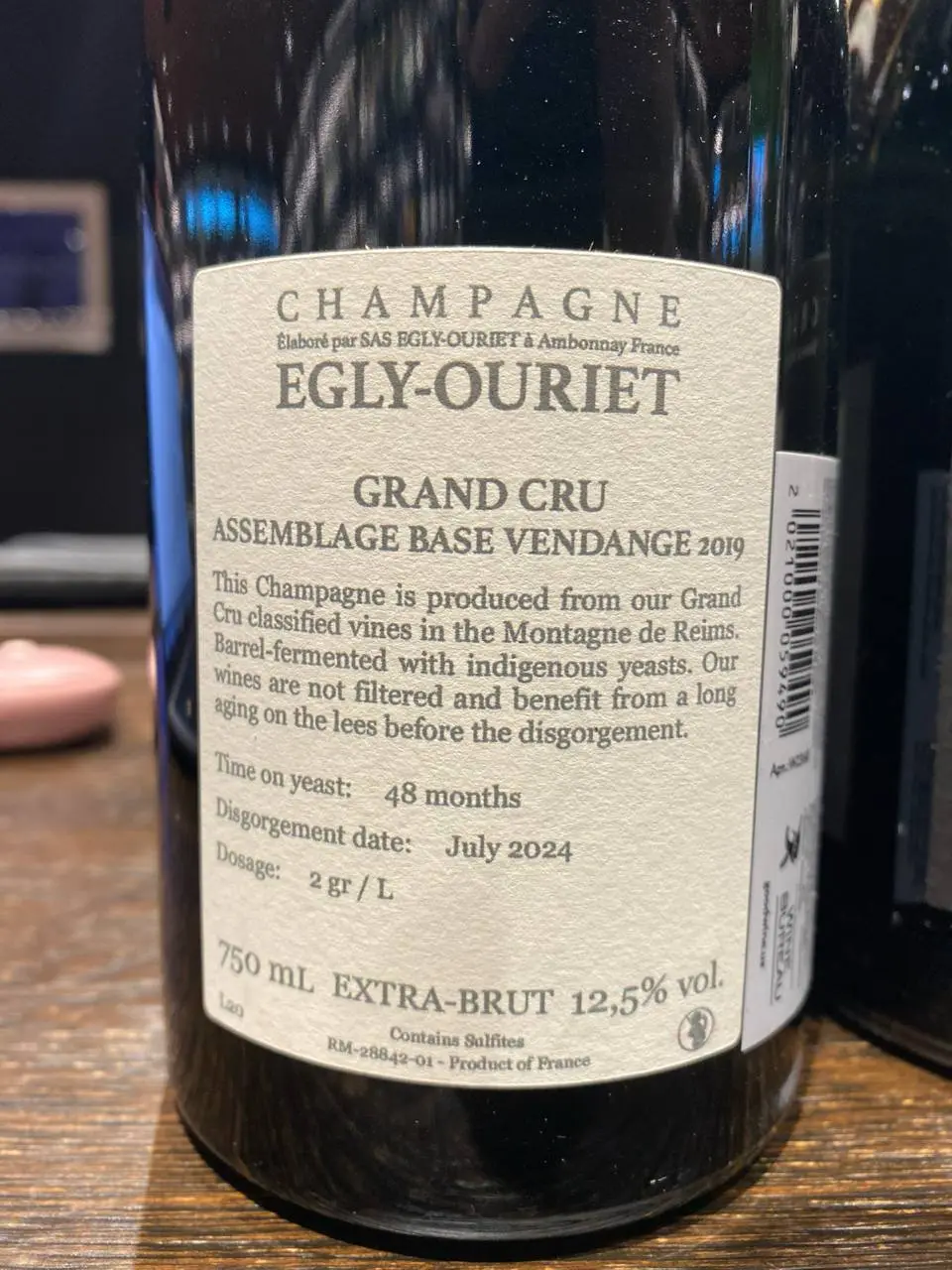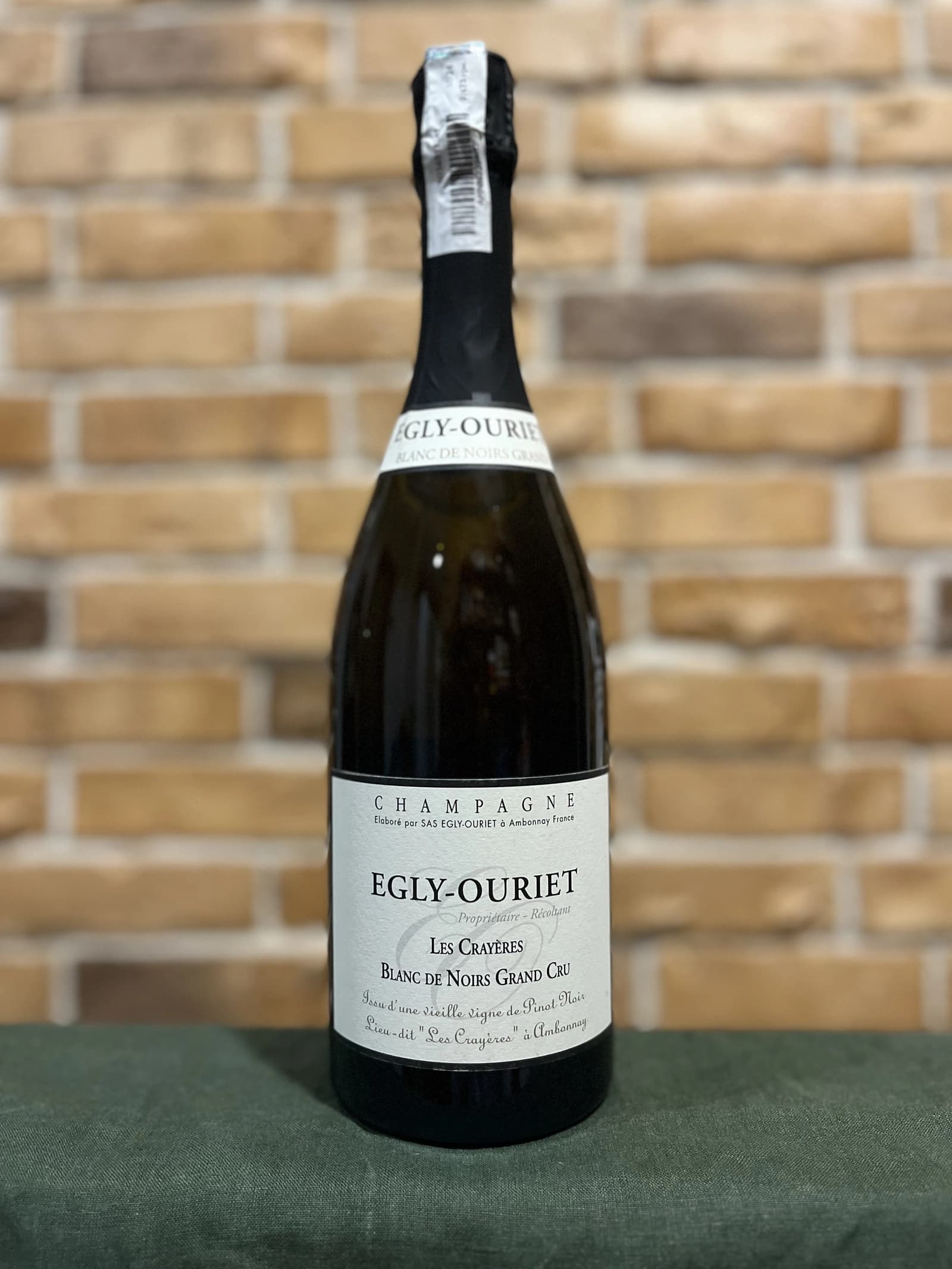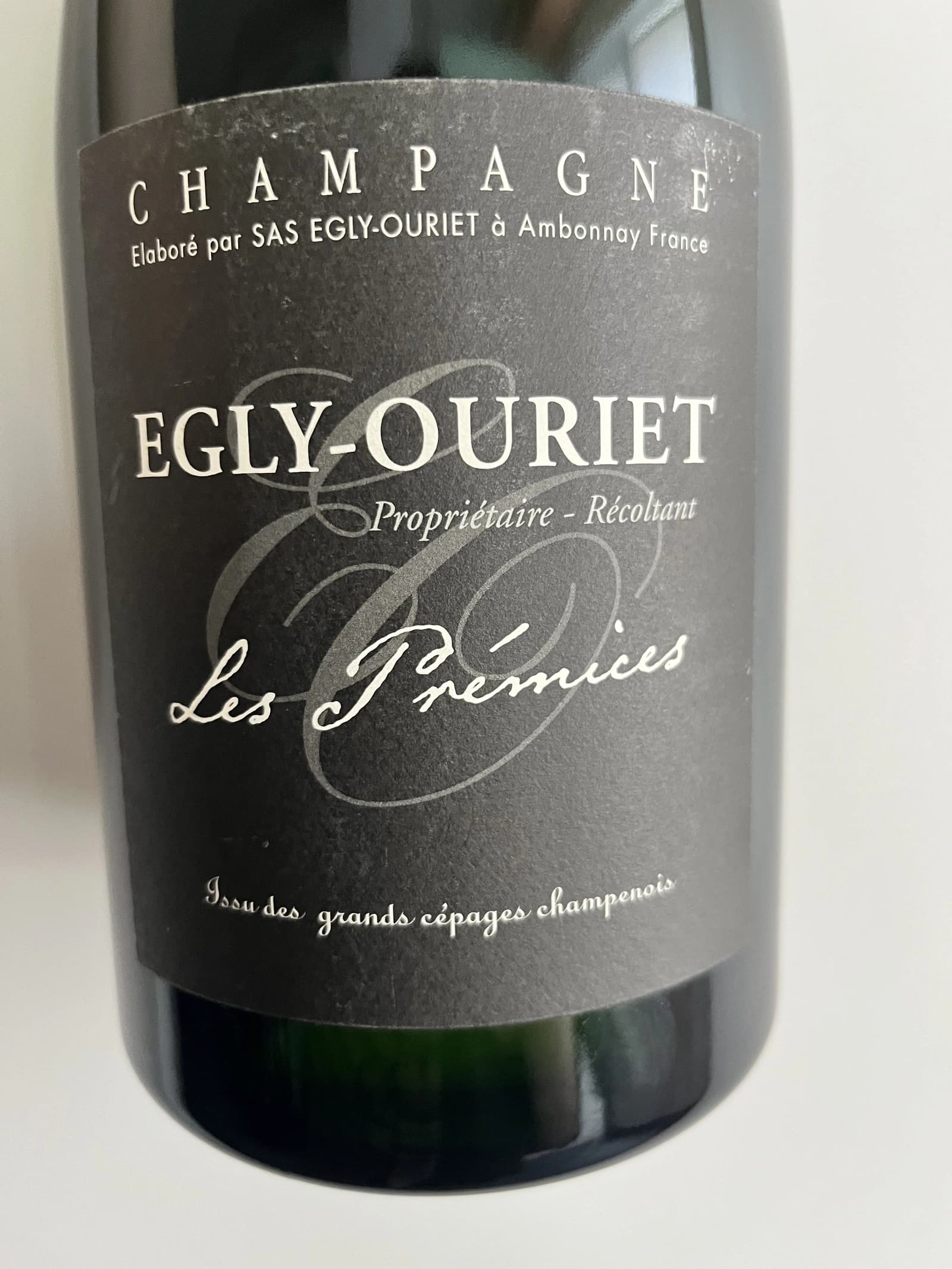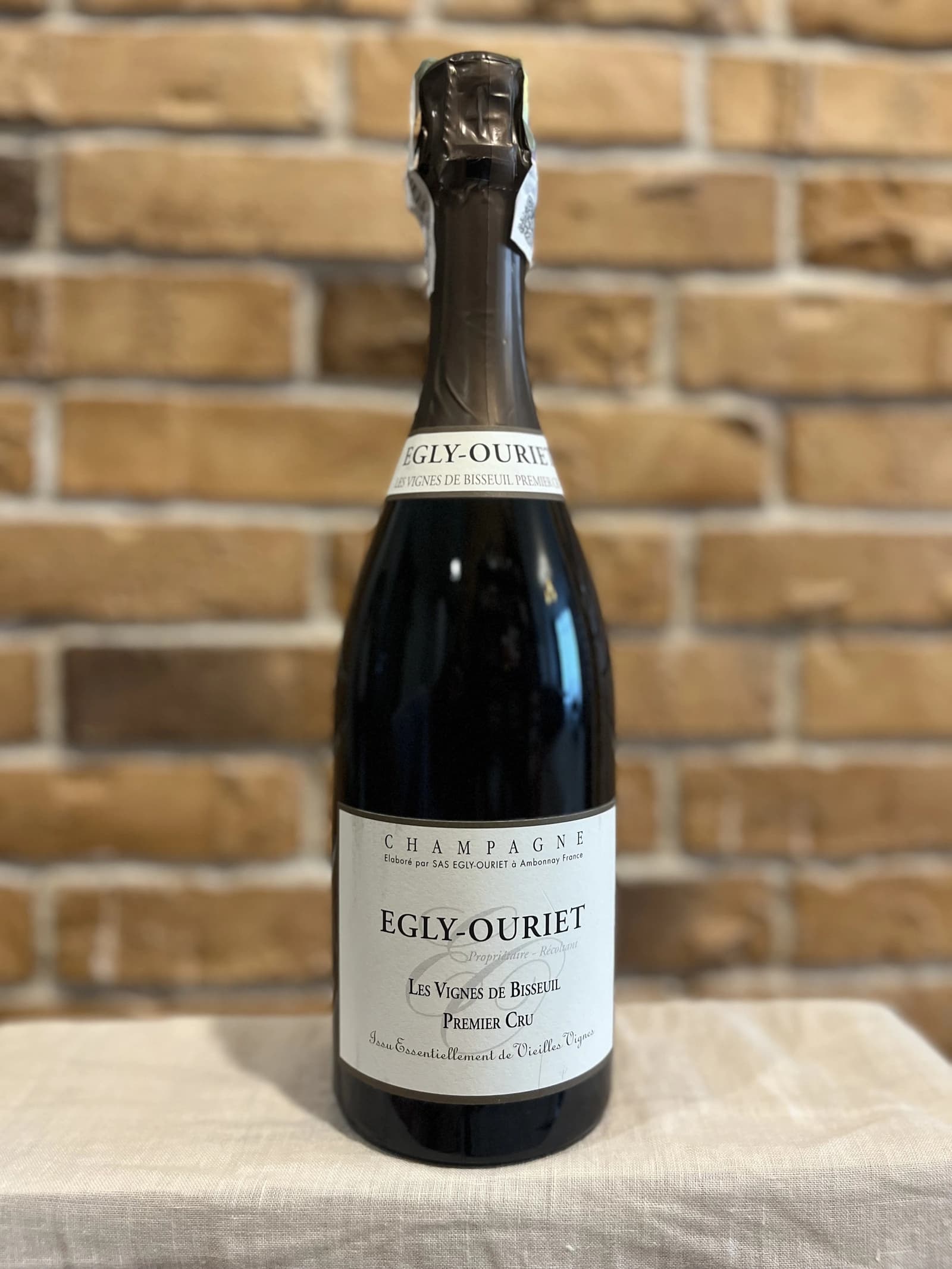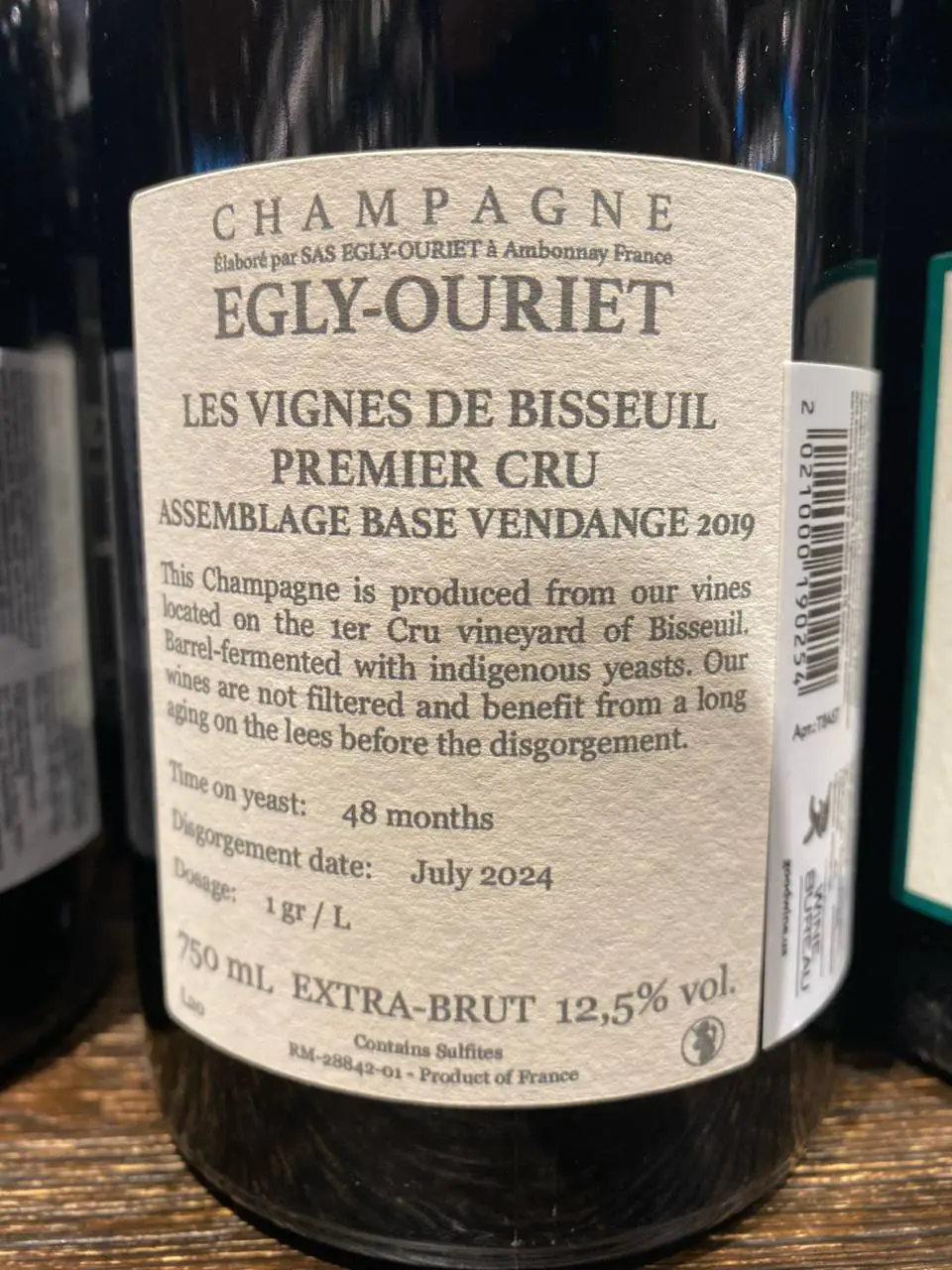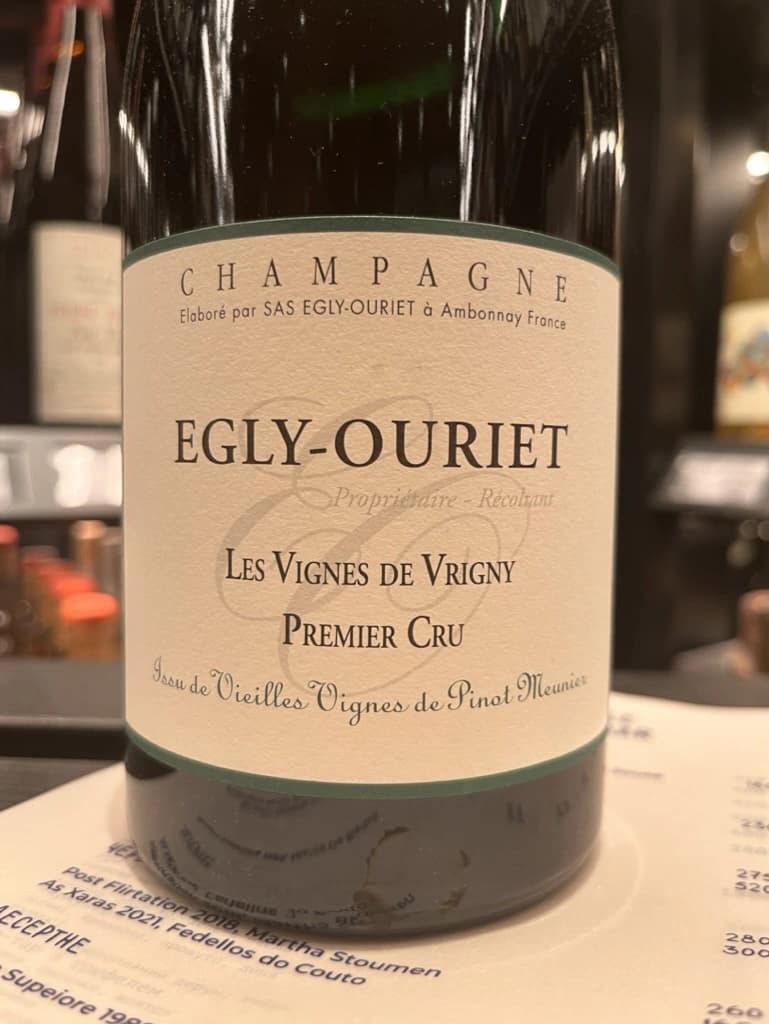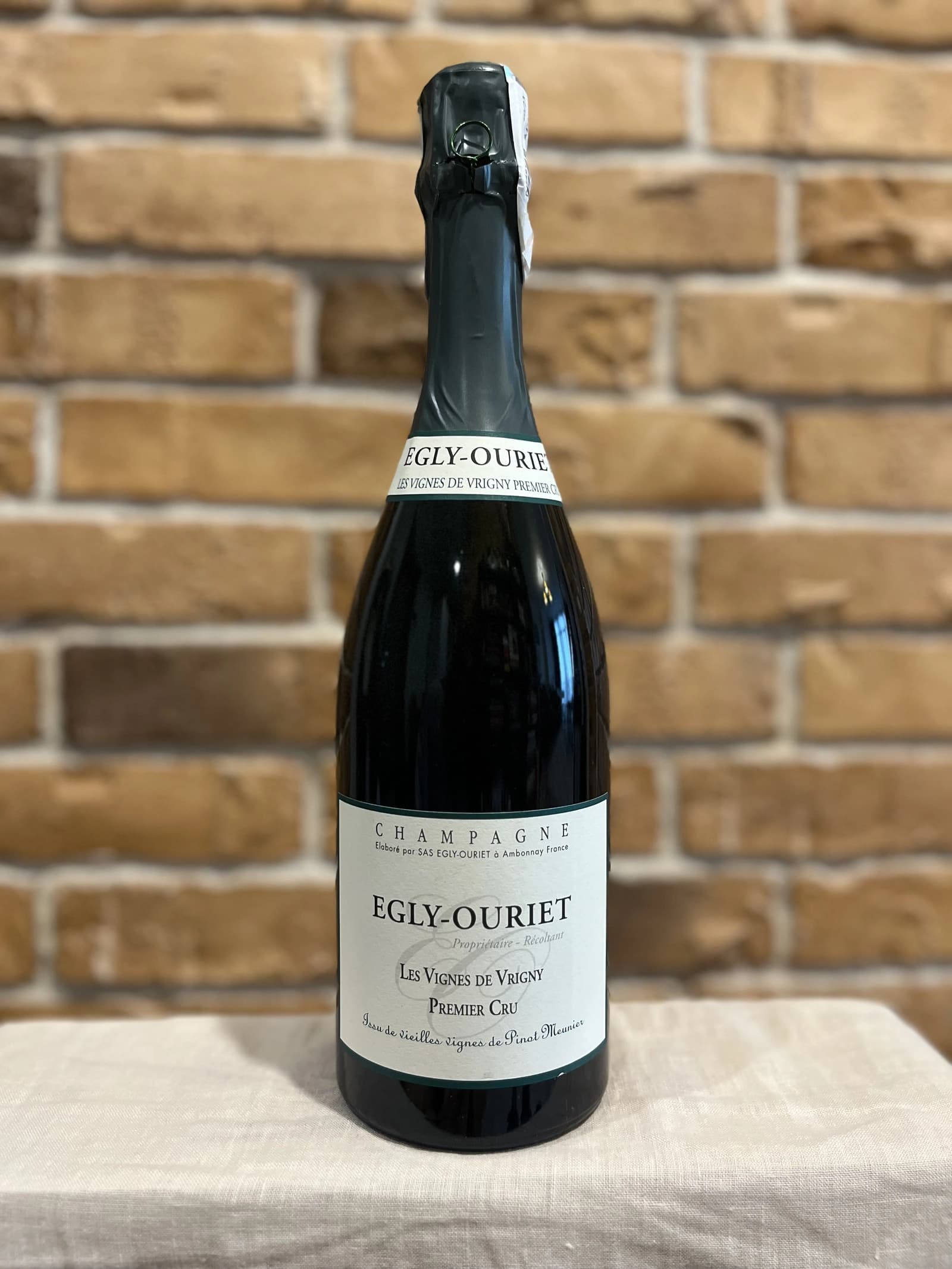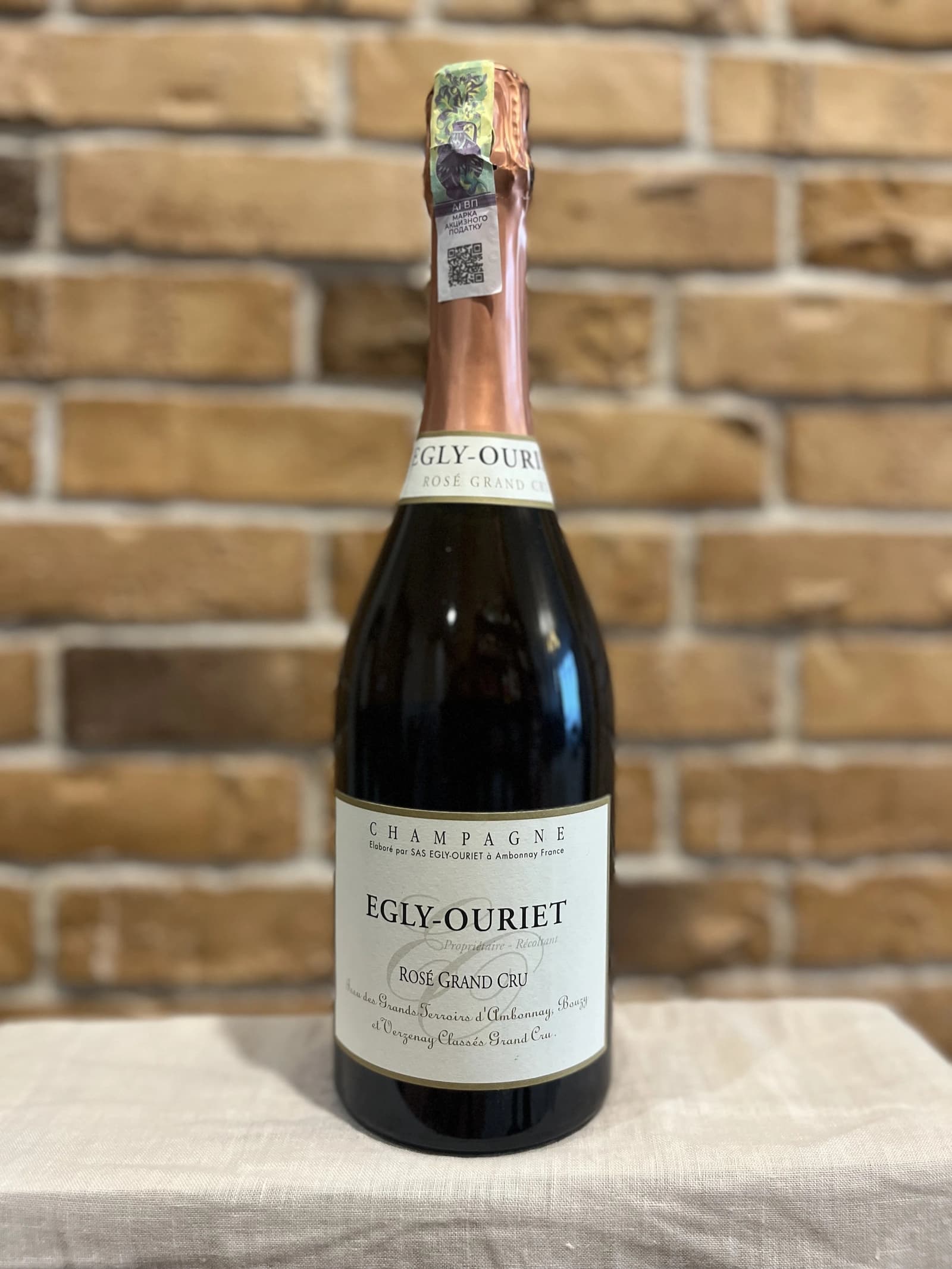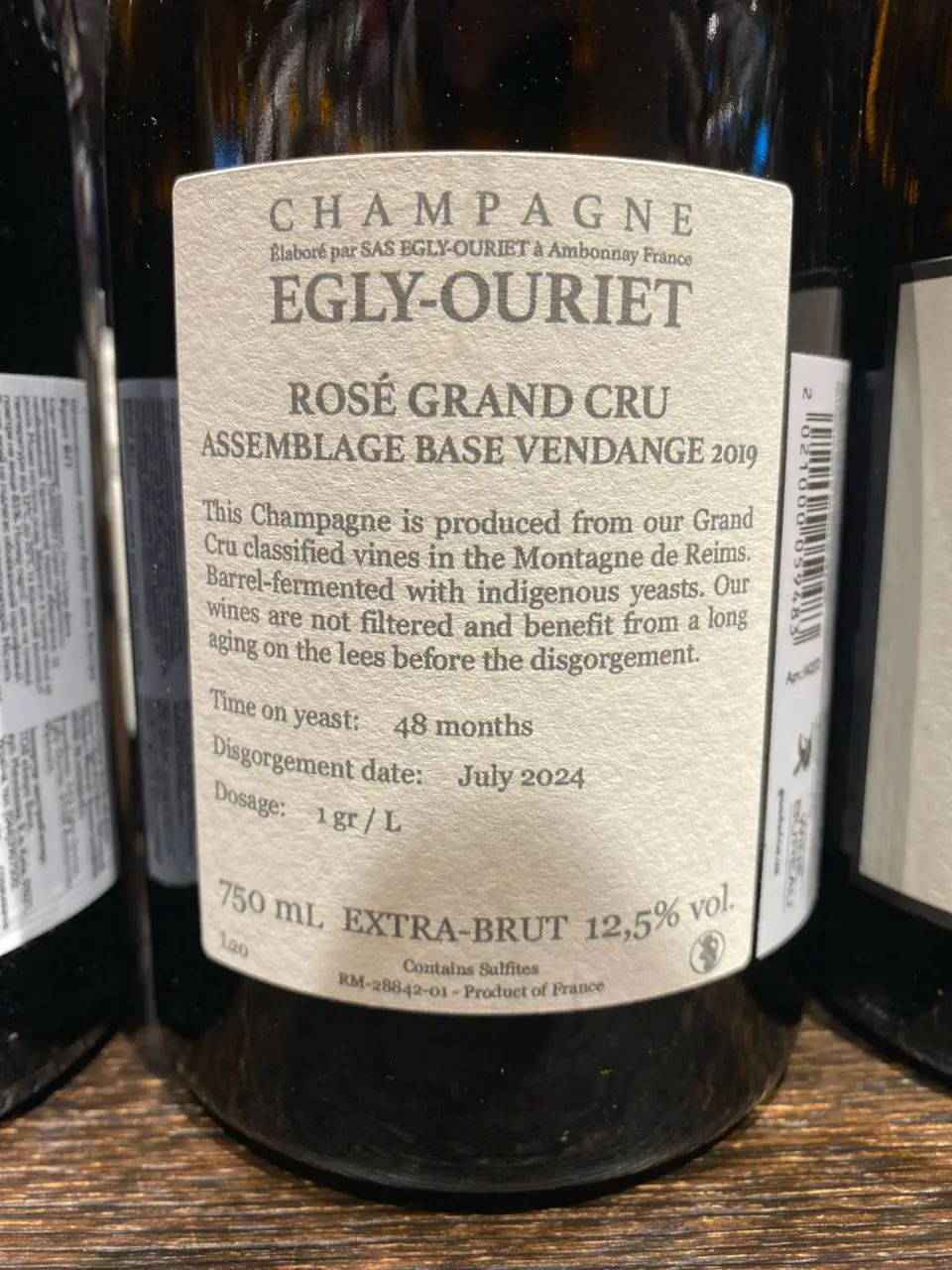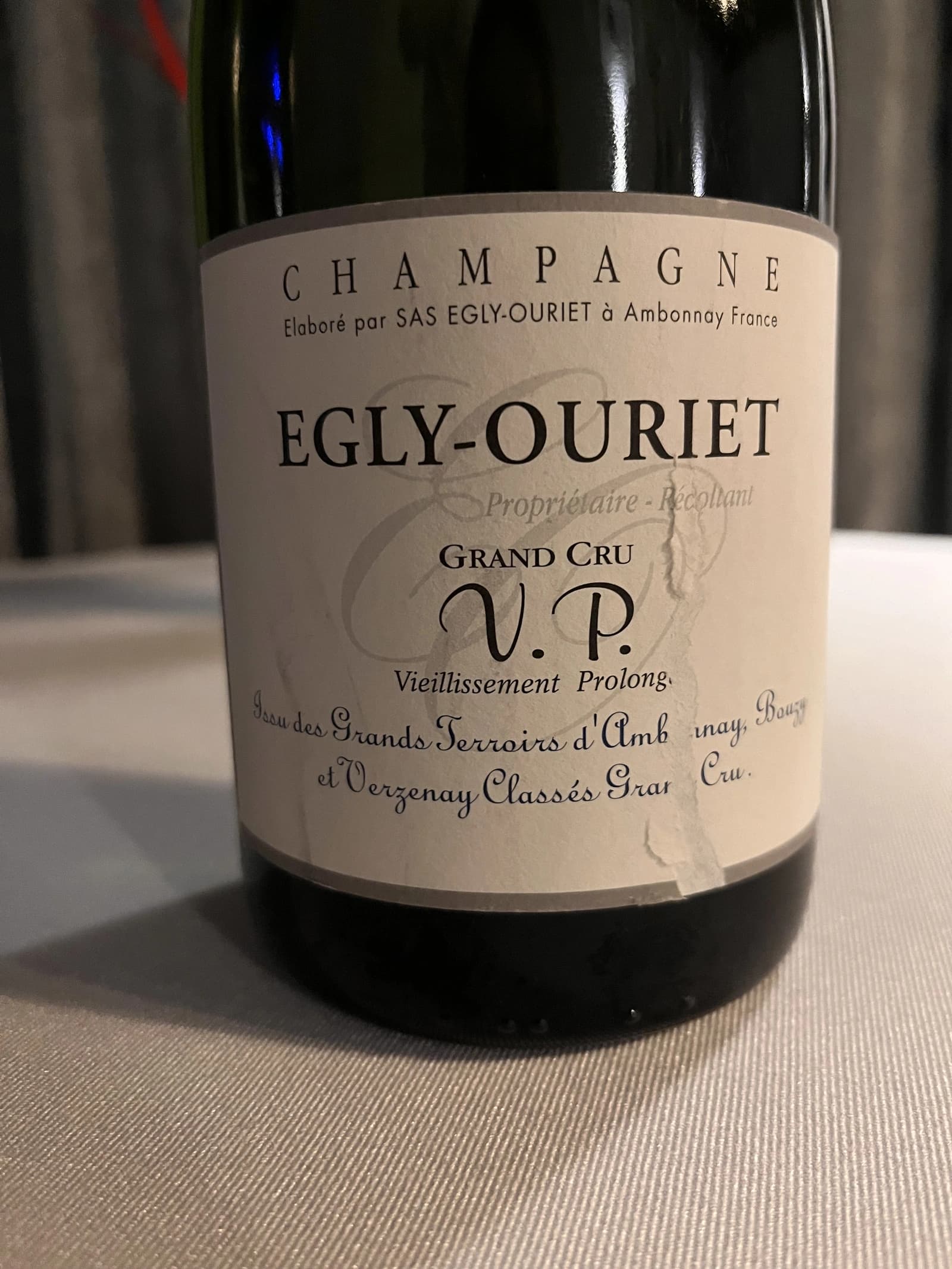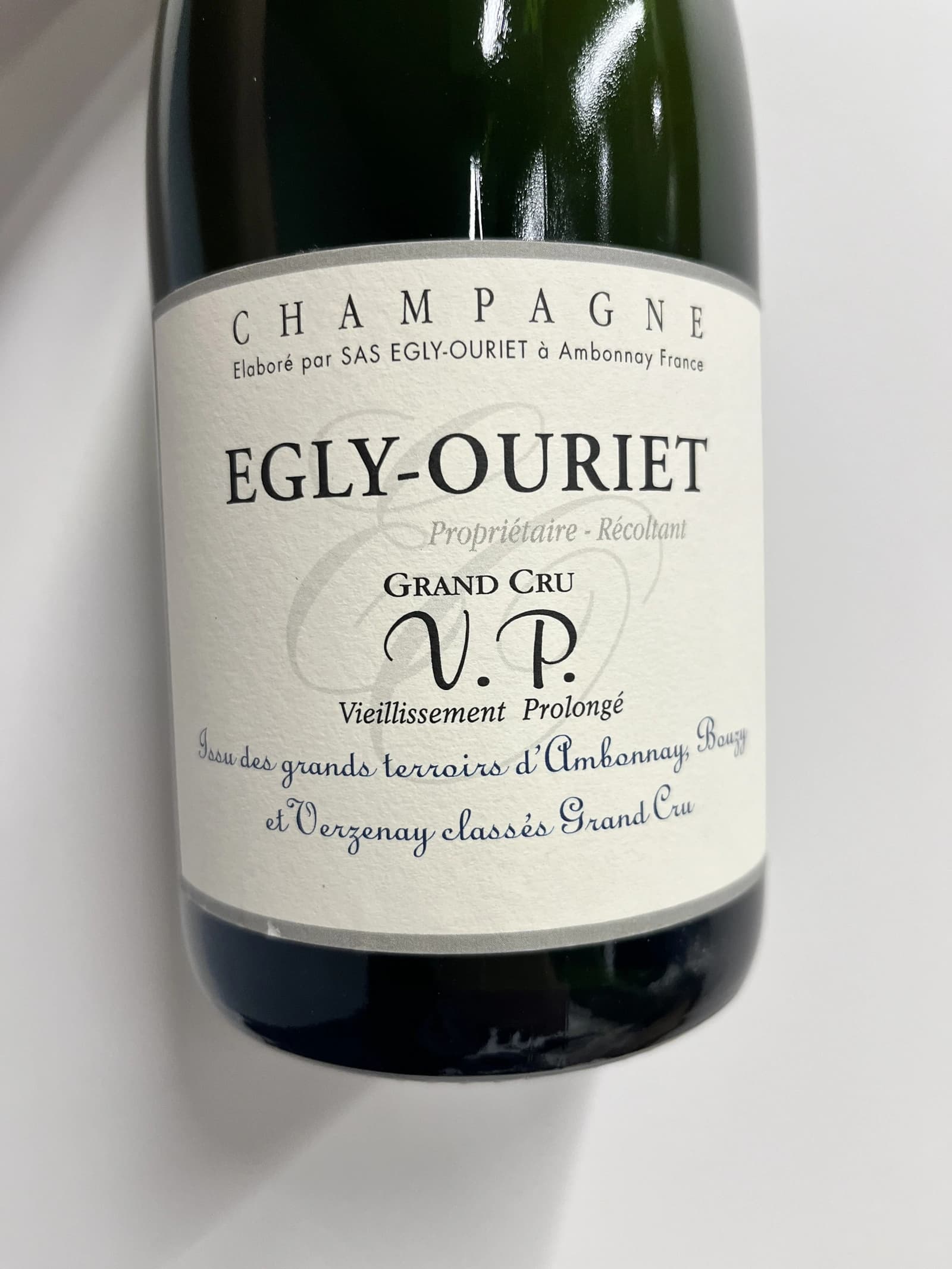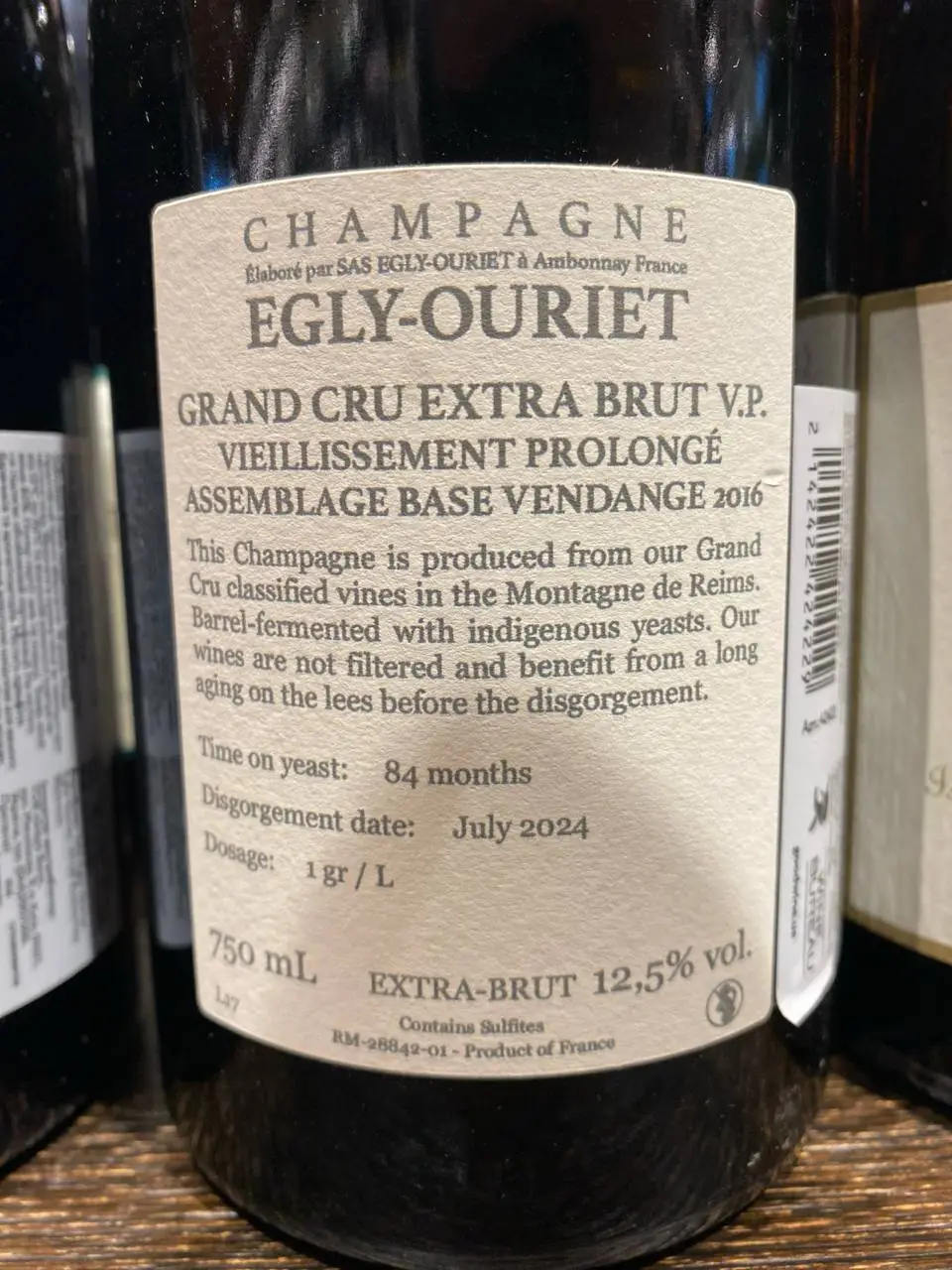Egly-Ouriet Les Crayères Blanc de Noirs Grand Cru (d2023) NV
- Region
- France » Champagne » Champagne AOC » Montagne de Reims » Grande Montagne Reims » Ambonnay
- Type
- white traditional sparkling, extra brut
- Producer
- Vintage
- NV, based on 2016
- Disgorged
- 2023-07
- On lees
- 72 months
- Grapes
- Pinot Noir
- Alcohol
- 12.5
- Sugar
- 2
- Volume
- 750 mL
- Cellar
- 1 bottles
- Find at
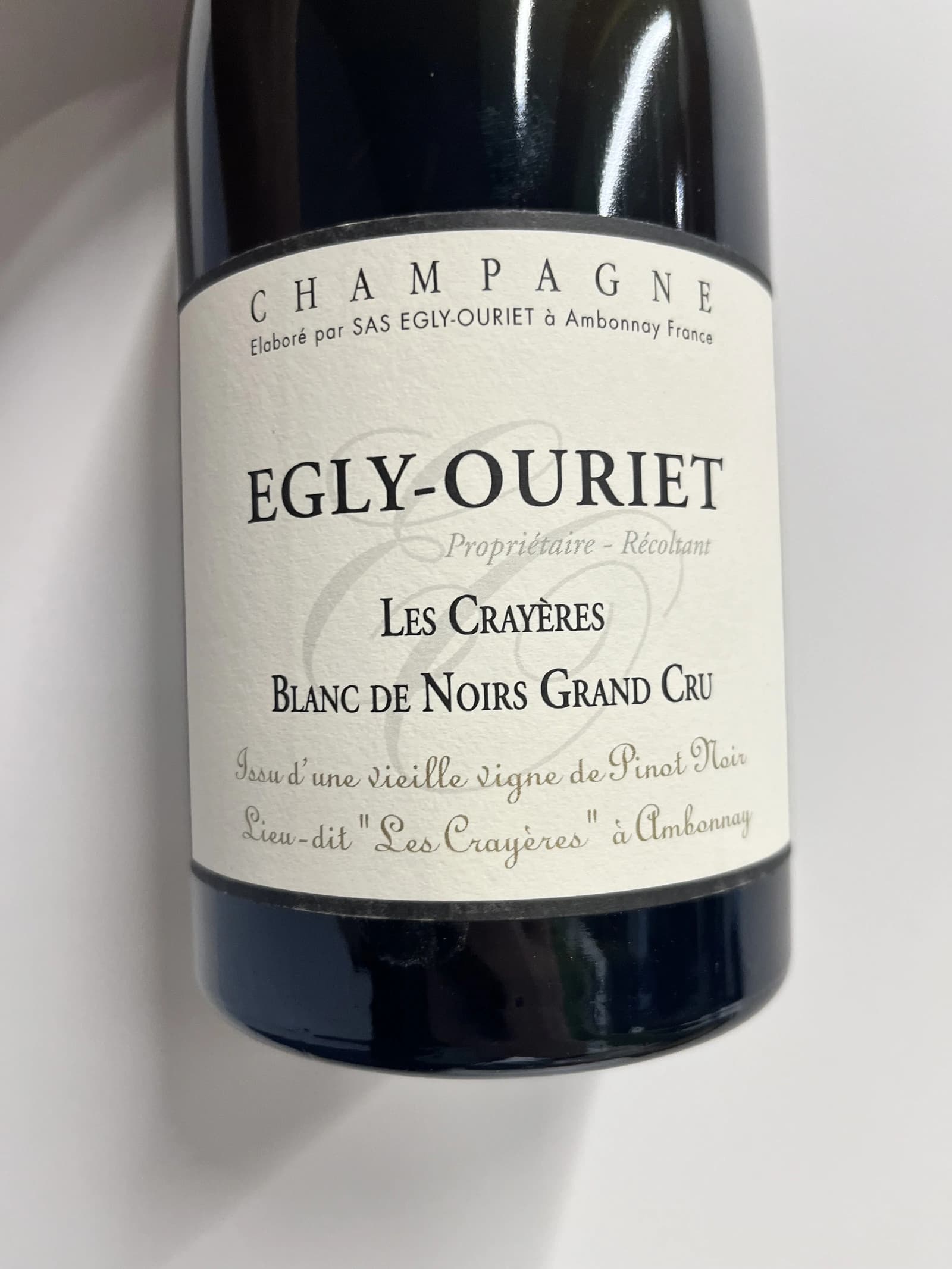
Ratings
The wine's bouquet is not only generous but also beautifully complete and integral, making it a challenge to pinpoint specific descriptors. Nevertheless, I managed to discern some notable notes, including praline, honey, pastila, white bread, white currant, and white flowers.
Despite its inherent power, the wine retains an elegant and somewhat soft character with a pillow-like mousse. Its complexity is truly remarkable, offering multiple layers of flavor that delve deep into the palate. The balance is impeccable, and the aftertaste is exceptionally long and continues to evolve over time. Flavors reminiscent of bruised apples, baked apples with honey, apple candy, lemon candy, and a hint of Jerez grace the palate.
This wine is nothing short of incredible, and what's even more remarkable is that, despite its sophisticated nature, it remains approachable and irresistibly delicious.
About Producer
Egly-Ouriet, a name synonymous with excellence in the Champagne region, is steeped in a rich history and a relentless pursuit of quality. Led by Francis Egly, the fourth generation of the Egly family, this esteemed house in the Grand Cru village of Ambonnay is renowned for producing some of the finest Pinot Noir-based Champagnes. Since taking over from his father Michel in 1980, Francis has been instrumental in elevating these already acclaimed Champagnes to new heights through his dedication to organic vineyard practices and meticulous winemaking.
The vineyards of Egly-Ouriet, predominantly located in the Grand Cru villages of Ambonnay, Verzenay, and Bouzy, are planted with a majority of Pinot Noir and a significant proportion of Chardonnay. The average age of the vines is around 45 years, reflecting Francis's commitment to working with older vines to achieve greater depth and complexity in his wines. This commitment extends to rigorous yield control, ensuring that only the ripest grapes are harvested, a practice that sets Egly-Ouriet apart in a region known for its high yields.
Francis Egly's approach in the cellar is marked by a blend of tradition and innovation. He employs indigenous yeasts for fermentation, with a portion of the wine fermented in French oak barrels sourced from Burgundian winemaker Dominique Laurent. This use of oak, alongside extended lees ageing, imparts a distinctive texture and complexity to the Champagnes of Egly-Ouriet. Most notably, the wines are aged on the lees for a minimum of 36 months, and in some cases, over 100 months, resulting in Champagnes of extraordinary depth and structure.
Egly's philosophy in winemaking is characterized by meticulous attention to detail and an unyielding quest for quality. He is a pioneer in many respects, from bottling single-vineyard expressions to using oak barrels for fermentation, practices that were once unconventional in Champagne but have now become hallmarks of the grower Champagne movement. His approach to dosage is equally thoughtful, keeping it very low to maintain the purity and expression of the wines.
The legacy of Francis Egly is built on a foundation of quality and innovation. His Champagnes, celebrated for their vinous quality, concentration, and complexity, are not just expressions of the terroir of Ambonnay but also of his unrelenting pursuit of excellence. Egly-Ouriet Champagnes are a testament to the potential of Pinot Noir in Champagne, showcasing the power, finesse, and sublime character that can be achieved through dedicated viticulture and skilful winemaking. Francis Egly's influence extends beyond his own estate, contributing significantly to the evolution and elevation of Champagne as a region capable of producing wines that stand shoulder-to-shoulder with the world's best.
Related Wines
